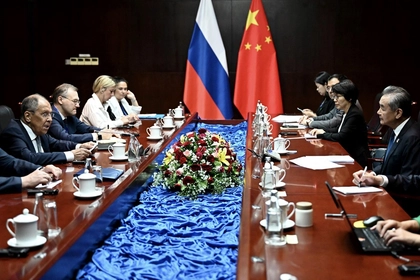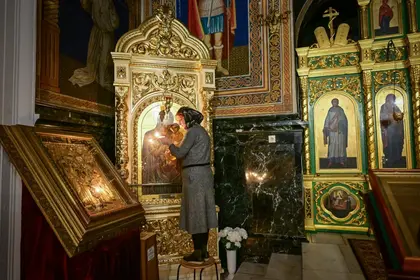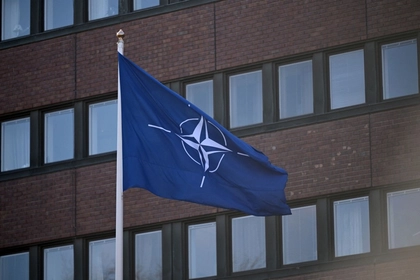Long torn between loyalty to the Russian or Romanian Orthodox Church, the Moldovan village of Cimiseni has made its choice, triggered by Moscow's invasion of Ukraine.
The parish in the village near the capital Chisinau, whose 2,850 inhabitants mostly speak Romanian, is one of a growing number that have switched allegiance from Moscow to Bucharest.
JOIN US ON TELEGRAM
Follow our coverage of the war on the @Kyivpost_official.
The divorce mirrors the former Soviet Republic's bigger struggle as it seeks to leave behind Russia's influence and join the European Union.
"This fight between Orthodox brothers has outraged people," priest Ioan Solonaru told AFP, referring to the war in Ukraine.
Parishioners "started to tell me that they no longer wanted to come to Kirill's church to receive communion", said Solonaru, referring to Patriarch Kirill of Moscow, the leader of Russia's Orthodox Church and a staunch supporter of the invasion.
The reception of Ukrainian refugees pouring over the border has also raised awareness in Moldova.
Since the invasion, more than 50 parishes have switched allegiance from Moscow to Bucharest, according to Moldova's Romania-linked Metropolis of Bessarabia.
"Nothing unites us with Moscow any more," said the 55-year-old Solonaru, incredulous at "the nostalgia of some people for the USSR".
- 'Lost sons' -
In a recent letter, Metropolitan Vladimir, head of the Russia-linked Metropolitanate of Moldova, expressed concern about the departure of priests.

Russia, China FMs Meet as ASEAN Talks Get Underway in Laos
He wrote to patriarch Kirill of the "marginalisation" of his church "because of its membership in the Moscow Patriarchate, perceived in Moldovan society as an outpost of the Kremlin".
The Moldovan people aspire to get closer to Romania, he suggested, asking for a solution to "end the crisis".
A meeting of the highest dignitaries -- held following the letter -- decided to maintain their allegiance to Moscow.
Around 1,350 parishes in Moldova are Moscow-linked, far more than some 200 with allegiance to Romania.
"We do not feel in danger," Ioan of Soroca, vicar of the Metropolitanate of Moldova, told AFP.
The Metropolitanate of Moldova has condemned the war in Ukraine -- though not Kirill -- with Bishop Ioan describing those who left as "lost sons (who) must come to their senses".
Metropolitan Vladimir said this week that their actions were "reckless".
- 'Pro-European signal' -
Russia's invasion of its neighbour in February 2022 has accelerated the pro-European drive in the country of 2.6 million people, situated between Ukraine and EU member Romania.
The Metropolis of Bessarabia is receiving newcomers "with open arms", according to spokesman Constantin Olariu, just as Moldova is preparing to open accession negotiations with the EU.
"It's a pro-European signal," he said, adding that his church had to resume its activities "from scratch" in 1992 following Moldova's independence.
President Maia Sandu sent a similar message, calling in a recent radio interview on "all of society, including the Church" to unite for "peace" on the path to European integration.
The war has also sowed division among Orthodox Christians in neighbouring Ukraine.
In October, Ukrainian lawmakers advanced legislation to ban the Moscow-linked Ukrainian Orthodox Church -- which says it has severed ties with Russia since May 2022.
Ukraine also passed legislation to move its official Christmas holiday to December 25, in a break with the Russian Orthodox Church that celebrates it on January 7.
Ukraine had been under Moscow's spiritual leadership since the 17th century at the latest, but part of the Ukrainian Orthodox Church broke with Moscow in 2019 over Russia's annexation of Crimea and its support for separatists in the east of Ukraine.
You can also highlight the text and press Ctrl + Enter






